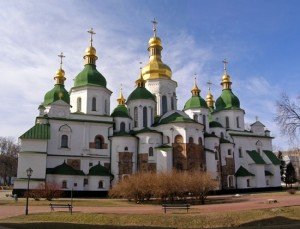In the last issue I opened a topic which is very important if we want to understand our Church: SACRED TRADITION or, as it is sometimes called Apostolic Tradition. It is comprised of four things: (1) our reception of God’s Message, (2) our communion with the Author of that message, the Holy Spirit, (3) our union with Christ, and (4) through Him, our union with His members, the Church. These living relationships are the only context of Tradition.
SACRED TRADITION will constantly preserve, protect and illuminate the Biblical Tradition. In fact, because it truly recognizes the absurdity of trying to divide God’s revelation into two parts, the Church should make no distinction between Tradition and the Biblical Canon. God’s Word is God’s Word; whether it is spoken, heard, acted upon or expressed in worship. Just as the Truth of the Holy Spirit will never contradict Himself by presenting other opposing truths, TRADITION will never challenge the teaching of the Scriptures.
The Eastern minded Christian sees how the Bible in the hands of the Spirit-led Church can be a measuring rod able to gauge false traditions from True Tradition. In fact, this is one of the roles which the Bible must perform. To the Church, the Bible is the unique canon of truth or rule of faith. This means that all tradition (i.e., the unfolding of the biblical revelation within the life of the Church) must, in some way, be measured against scripture and judged in terms of it.
Again, Scripture is nothing more than a written testimony to and a product of Tradition. The Bible as a real instrument of the Spirit must harmonize with anything which similarly claims its birth from Tradition. Like two tuning forks set to the same note, the written record of Tradition must reverberate its tone with any other valid expression of Tradition, whether Creed, sermon, teaching or anything else. If something is our of pitch with Scripture, it is not of Tradition. For this reason Tradition could never produce any other heretical body of teaching.
Sacred Tradition also takes into consideration any differences that may, perhaps, come from the differing theological positions of the Eastern and Western Churches (e.g., inclusion of the filioque in the Creed) which is different. Both versions still maintain our belief in the Holy Trinity.

